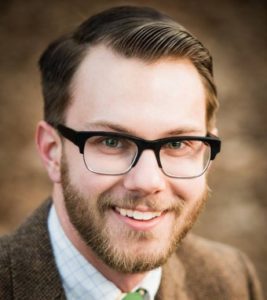The current pandemic places great challenges on many facets of American religious life, perhaps none greater than small denominationally affiliated colleges and universities, many of which already were struggling financially well before the current crisis.
While these challenges are institutionally strenuous, they also put a tremendous burden on both tenured faculty as well as junior scholars and recent Ph.D.s seeking academic positions. This pandemic has forced us to ask what value we place on academic expertise.
What’s different at denominational schools
Faculty in denominational colleges and universities never have had a particularly easy task. They find themselves working at institutions caught between two poles within the American system of higher education. At one end of the spectrum are public colleges and universities with no religious affiliation, while on the other end of the spectrum are religious institutions like Biola, Bob Jones and Wheaton that market themselves as hyper-confessional.
They find themselves working at institutions caught between two poles within the American system of higher education.”
As BNG recently reported, denominational colleges and universities over the course of the 20th century have struggled to hold a middle ground or imagine another way of relating their confessional identity with their secular academic purpose.
Many schools have been drawn toward the esteem and reputation of what historian and evangelical thinker George Marsden calls “pace-setting” institutions. In Marsden’s The Soul of the American University: From Protestant Establishment to Established Nonbelief, he laments the ways in which institutions of higher education have become less religious — less confessional — particularly at “pace-setting” institutions like Harvard, Princeton and Yale.
In idealizing these institutional models, however, evangelicals like Marsden create difficult avenues for imagining how denominational schools can carve out a unique niche within the larger ecosystem of American higher education that is neither completely devoted to “secular” academics nor a sectarian confessional identity.
Influence of national ranking systems
This pressure to think in binary terms remains all the more heightened by college rankings systems produced by U.S. News and World Report and other groups. Since 1983, U.S. News and World Report has been ranking colleges and universities across the country. The magazine provides excellent data on institutions of higher learning and creates helpful marketing tools for academic institutions. Schools can easily highlight where they most excel in comparison to other institutions and identify where they most need to improve.
“Ranking systems … encourage schools to implement policies and initiatives that benefit their ranking but do not always create better educational environments.”
At the same time, these ranking systems have standardized methodologies that encourage schools to implement policies and initiatives that benefit their ranking but do not always create better educational environments. By holding up standard bearers in higher education, ranking systems encourage schools to look and feel the same. This stifles innovation.
Many schools, disappointed with their rankings, have set out to “game” the system and improve their rankings quickly. Denominational schools are not immune to this behavior.
One criteria for college rankings systems include weighting the average standardized test scores for freshmen, so in 2008 Baylor University offered newly admitted students financial incentives to retake the SAT in order to score higher. They reported 861 students retook the exam and received a $300 bookstore credit, while 150 scored 50 points higher on the exam and were awarded $1,000 merit scholarships.
Gaming the system can work. Northeastern University was ranked No. 162 in 1996 and worked tirelessly to raise its rank over the next few decades by instituting targeted policies and good old glad-handing. Today it is ranked No. 49.
Small denominational colleges and universities were not designed or founded to be able to compete in this type of higher education market.
As schools invest financial resources in schemes to improve their rankings or marketing tactics to attract students, resources for faculty support dwindle. At denominational colleges in particular, faculty often are required to take heavier teaching loads in order to reduce class sizes and ideally improve the school’s ranking. As a result, these faculty have less time for academic and professional development, much less their own research. The additional teaching also can get in the way of necessary committee work and student advising, which in turn distracts from teaching.
Professional organizations like the National Association of Baptist Professors of Religion once were robust enough to hold regional gatherings of more than 50 scholars for targeted meetings. Today, as many schools limit faculty travel funding, the Southeastern region of NABPR considers an attendance of 12 to 15 individuals (including graduate students) to be a good turnout. Such conferences are one way faculty stay engaged formally and informally in the wider academic community.
Diversity and tenure challenges
The pressures placed on female faculty and faculty of color are compounded in such an environment, particularly at small denominational schools that struggle both to attract and prioritize diversity in faculty. Many times, the few women and persons of color on faculty are asked to participate on more committees and provide representation on a variety of initiatives a school may be implementing. As this pandemic has revealed inequity across multiple facets of American life, the academy is no different.
“The few women and persons of color on faculty are asked to participate on more committees and provide representation on a variety of initiatives.”
As a result of limited resources for faculty support, many denominational schools are unable to attract or retain strong faculty members. These individuals often transition to institutions with lighter teaching loads, better faculty recourses, or both.
While there is much to critique about the tenure system that allows faculty to hold onto coveted academic positions regardless of their contributions to scholarship or the institution, the alternative in which faculty are paid low salaries and required to teach five classes a semester in addition to other responsibilities is similarly problematic.
More challenges this year
For recent Ph.D.s looking for teaching positions, the challenges are even steeper in the current climate.
According to the two studies by the Evangelical Council for Financial Stability this year, among all “Christ-centered” nonprofit organizations surveyed, institutions of higher education were those least likely to have an optimistic outlook about cash gifts and donations. In May, only 29% of higher education institutions surveyed had an optimistic outlook, and while that percentage grew to 49% in September, it still trailed all other categories of nonprofit ministries. For recent Ph.D.s this means hiring freezes and few job postings.
With so few teaching positions, junior scholars on the job market face enormous competition among their peers. Preparing application materials can become a delicate game of balancing one’s teaching experience with one’s research agenda with perhaps one’s confessional bona fides depending on the school.
Do denominational connections help?
Denominational colleges and universities make things all the more difficult because they may be looking to prioritize a candidate with a particular confessional background, or they may be looking for a candidate with a strong academic pedigree. Sometimes being a well-rounded candidate may not be appealing if a search committee simply wants to be able to show they have a faculty member who went to Harvard, Princeton or Yale. At the same time, some institutions may find such an academic pedigree off-putting.
“Denominational colleges, universities and even seminaries often are guilty of playing favorites and hiring former students or inside candidates.”
As with many job markets, landing an academic job can be reduced to knowing the right people. Denominational colleges, universities and even seminaries often are guilty of playing favorites and hiring former students or inside candidates.
In the 1970s and ’80s, at the height of Southern Baptist higher education, the denomination’s academic networks helped ensure that graduates of larger Ph.D.-granting institutions within Southern Baptist life found positions in smaller SBC-related colleges. Such insularity may not have fostered the most robust academic inquiry, but it did create helpful pipelines for placing junior scholars in tenure-track positions.
Today, denominational institutions might look out for a former student or they might not.
I attended a religious studies program at Florida State University and knew many colleagues who found themselves both committed religious practitioners as well as rigorous scholars. At a public institution, it was necessary for each of us to maintain our own denominational connections that might help open up job opportunities in the future. The institution itself was not connected to our respective denominational networks.
For some of my colleagues, networking and connections paid off and resulted in jobs at their alma maters or other institutions within their denominational homes. Other colleagues, because they were attending a secular state institution, seemingly did not bother with applying for jobs within their denominational networks, knowing their educational backgrounds were not “confessional” enough. And still others regularly received rejections and were turned away from the very institutions they had long tried to foster the right relationships with to one day land a job.
Narrow interests in hiring
As with current faculty, women and persons of color on the academic job market face additional challenges. Many schools are cognitive of the lack of diversity among their faculty, but they fail to offer job calls that rectify this lack of diversity. Instead, they tokenize women and candidates of color.
Schools might look for a scholar whose research intersects with gender or race and indicate that they are strongly interested in candidates from diverse gender and racial backgrounds. In so doing, however, they reduce the scholarship of candidates to their gender or racial identity, as if a woman of color could not have research and teaching expertise in a subject such as “white evangelicalism.”
“The current job market necessitates junior scholars have incredibly thick skin in order to withstand rejection.”
The current job market necessitates junior scholars have incredibly thick skin in order to withstand rejection from networks and institutions in which they have spent years trying to become qualified to work. It also means that increasingly there can be little incentive to engage in the academic structures of denominational life.
The Ph.D. versus the D.Min.
For scholars of religion, this is even more true, particularly with the growth of doctor of ministry programs.
This relatively new degree program, which gained popularity in the latter half of the 20th century, sought to provide an additional revenue stream to financially struggling seminaries and divinity schools. Ministry practitioners who enjoyed their master’s-level education could return to school for a program of specialized study. Pitched as a practical and professional degree, the doctor of ministry implicitly characterizes the doctor of philosophy as being an impractical and ivory tower degree. Why would denominational bodies seek such academic expertise when they could have practical expertise?
This is not to criticize doctor of ministry programs or belittle the accomplishment of those who pursue such a course of study. Indeed, the current societal conversation about academic titles like “Doctor” is a particularly important conversation to be had in liberal Protestant circles. It is an incredibly important conversation for those persons in our denominational circles pursuing Ph.D.s and looking toward a future denominational body with no place for their expertise — denominational schools are dying and denominations themselves might just as easily look to a well-connected and successful pastor who just finished a D.Min.
What’s next?
The solutions to the problems that plague American higher education are not all together clear, and denominational schools face an increasingly uncertain future.
Judson College, a Baptist women’s college, recently announced that it must raise $500,000 by Dec. 31 and another $1 million by the end of the academic year in order to survive. The closure of the 182-year-old school would be a tragic loss for Baptist life, but also for those who work there, including about 30 academic faculty.
In a digital age, when everyone has more information available at the very tips of their fingers at every moment of the day, what is the value of expertise in denominational life? And if the institutions are not valuable enough to financially sustain and support, are the people who teach and research at them any more valuable?
 Andrew Gardner is a visiting faculty associate of American religious history and Louisville Institute postdoctoral research fellow at the Hartford Institute for Religion Research. He holds a Ph.D. in American religious history and has recently been in the market for higher education jobs.
Andrew Gardner is a visiting faculty associate of American religious history and Louisville Institute postdoctoral research fellow at the Hartford Institute for Religion Research. He holds a Ph.D. in American religious history and has recently been in the market for higher education jobs.
Related articles:
What should it cost a denomination to control governance of a university?
Judson College needs $1.5 million or will be forced to close in January


